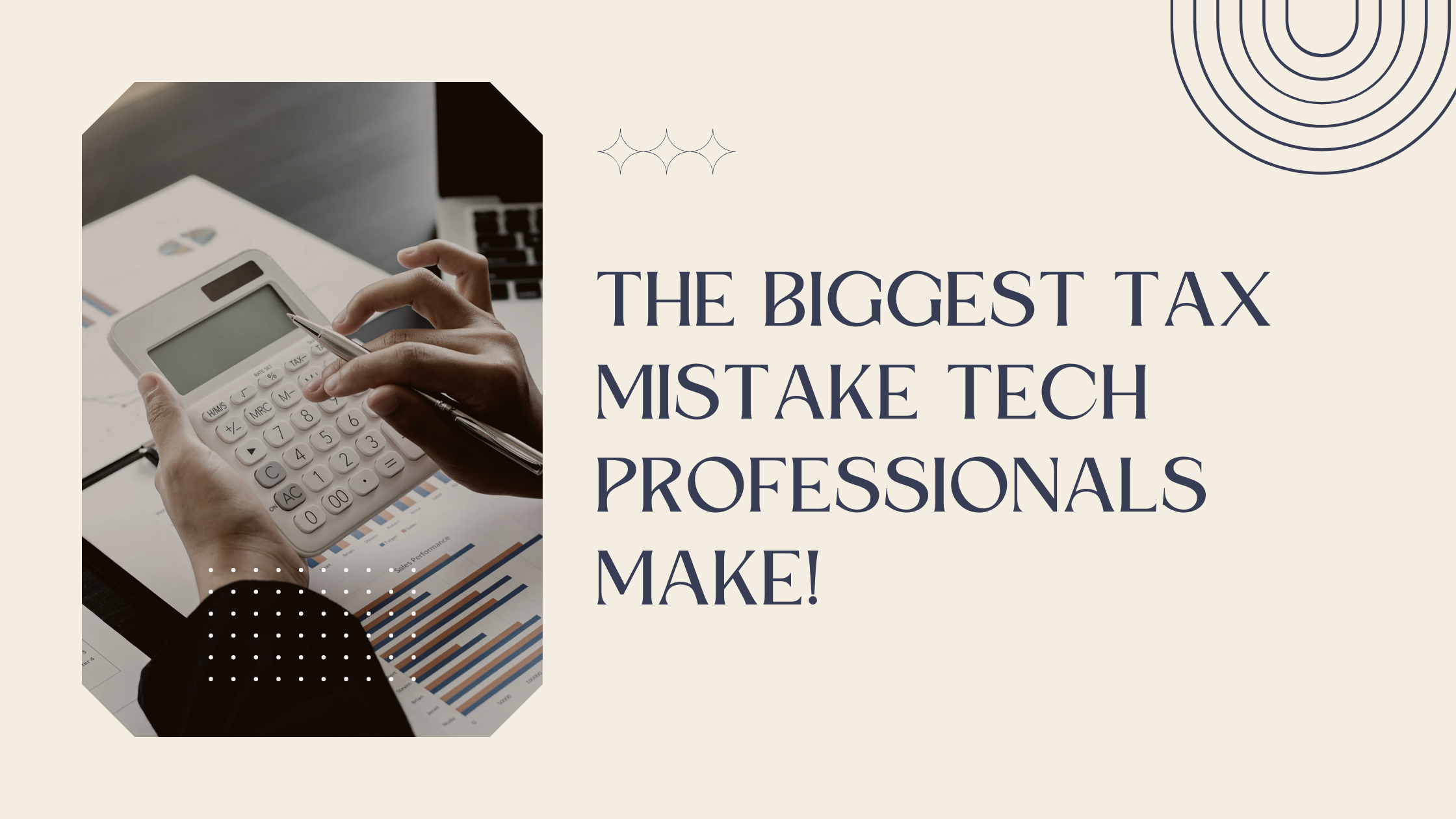How to Manage a Financial Windfall?
True Root Financial is a financial advisor and financial planner based in San Francisco, CA. We serve clients across the globe.
What if you suddenly receive an extra $10,000 in your account? Or $100,000 or even more?
A financial windfall can bring joy and excitement, but it can also come with a fair share of stress and pressure. Suddenly finding yourself with a significant amount of money might seem like a dream come true, but the fear of making mistakes can quickly turn that dream into a daunting experience. How do you ensure that this unexpected wealth is a blessing and not a burden?
If you are a tech professional interested in learning how we can help claim your financial independence by investing wisely, minimizing taxes, and maximizing your equity compensation, please book a no-obligation call here.
Key Takeaways
- Before making any decisions, understand the tax liabilities associated with your windfall to avoid surprises
- Use a portion of your windfall to pay off high-interest debt, freeing up future cash flow
- Develop a comprehensive plan that includes savings, investments, and risk management to secure your future
- Work with financial advisors, tax professionals, and estate planners to make informed decisions and protect your assets.
What are the common sources of a Windfall for Tech Professionals?
While a windfall can come from various sources, tech professionals might find themselves in this situation through specific avenues. Let’s explore some scenarios where a windfall could become a reality:
1.Your company Exit through Acquisition or IPO
One of the most common sources of a windfall in the tech industry is when a company goes public or is acquired. In this case, previously illiquid stocks or stock options suddenly become valuable, leading to a significant increase in wealth.
2. Inheritance
Another way a tech professional might experience a financial windfall is through an inheritance, which could include cash, property, or other valuable assets passed down from a relative.
3. Lottery Winnings
Lottery winnings are often subject to a high tax rate, which can significantly reduce the amount you actually take home.
What do Americans do with the Financial Windfall?
According to the survey by Citizens Bank, March 2024, Americans have big plans for an inheritance, with 60% planning to invest, 51% to pay off debt, and 43% to make a large debt payment. Others aim to start a business (34%) or fund a relative’s education (33%). Additionally, 36% would buy a new car, 26% would travel, and 20% would purchase a vacation home.
Source: Citizens, Wakefield Research, March 2024
Despite these ambitions, careful planning and guidance from a trusted advisor are essential to make the most of a windfall.
Common steps to avoid after a major Financial Windfall
Failing to consider your windfall’s tax implications:
One of the first and most important things to consider after receiving a windfall is the tax implications. Depending on the source of your windfall, you may face significant tax liabilities.
Company Stock Options or IPO:
If your windfall comes from company stock options or an IPO, short-term capital gains (for shares sold within a year) are taxed at higher income rates, while long-term gains (for shares held over a year) are taxed at a lower rate. Selling too soon could cost you more in taxes.
Inheritance:
Inheritance can also have tax implications, especially if the estate is large. Depending on your location, you might be liable for estate taxes or inheritance taxes. As of 2024, inheritance taxes are levied only in six states: Iowa, Kentucky, Maryland, Nebraska, New Jersey, and Pennsylvania.
Depositing your windfall into a high-yield savings account
Source: Wealthfront; assumes $10,000 initial deposit, 5.76% annual return for a diversified portfolio and 2% annual return for an FDIC insured high-yield savings account.
Spending all at once
The excitement of receiving a windfall can lead to impulsive decisions, such as spending it all at once. While it might be tempting to splurge on a luxury car, a new home, or a lavish vacation, it’s important to remember that this money can be used to secure your financial future.
Failing to address debt
If you have any outstanding debt, addressing it should be one of your top priorities after receiving a windfall. High-interest debt, such as credit card balances, can quickly erode your newfound wealth. By paying off debt first, you can free up more of your windfall for savings, investments, and other long-term financial goals.
Failing to address the new risks that might come with your new wealth
Sudden wealth can bring new financial risks that you might not have faced before. For instance, you may need to think about diversifying your investments if you have a large amount of concentrated stock from your company. Additionally, you might need to consider new insurance needs, such as excess liability insurance, to protect your assets.
Steps to follow after a Financial Windfall
Pause and Reflect
Before making any decisions, it’s important to take a step back and reflect on your situation. The sudden influx of wealth can be overwhelming, and it’s easy to make hasty decisions in the heat of the moment. Give yourself time to think about your goals, your values, and how this windfall can best serve you in the long run.
Create a Long-Term Plan
Creating a long-term financial plan is crucial to managing your windfall effectively. A financial plan helps you outline your goals, prioritize your spending, and ensure that your money is working for you.
- Know Your Goals: What do you want to achieve with your windfall? Whether it’s buying a home, funding your children’s education, or retiring early, knowing your goals will help guide your decisions.
- Invest for Your Goals: Once you’ve identified your goals, it’s time to start investing. Be sure to take inflation into account, especially for goals that are far off in the future. The right investment strategy can help grow your wealth over time.
Consult Professionals
Managing a windfall can be complex, and it’s not something you should try to navigate alone. Consulting with financial advisors, tax professionals, and estate planners can provide you with the guidance and expertise you need to make informed decisions.
Did you receive a large amount of concentrated stocks?
Risk management becomes even more important after receiving a windfall. If you’ve received a large amount of concentrated stock, diversification is key to protecting your wealth. Additionally, you may need to consider new insurance options, such as excess liability insurance, to safeguard your assets against potential lawsuits or other risks.
Can you do any tax planning to minimize your taxes?
Tax planning is an essential part of managing a windfall. By working with a tax professional, you can identify strategies to minimize your tax liability, such as contributing to tax-advantaged accounts like IRAs or 401(k)s. You might also explore tax-loss harvesting or other advanced techniques to reduce your overall tax burden.
Should you consider donating to Charity?
Donating to charity is not only a way to give back but can also have tax benefits. Charitable contributions can reduce your taxable income, and if you plan your donations strategically, you can maximize the impact both for the charity and your tax situation.
What about tax planning around Stock Options and RSUs?
If your windfall includes stock options or restricted stock units (RSUs), it’s important to understand the tax implications. For example, you may be subject to ordinary income tax when your RSUs vest, and capital gains tax when you sell the shares. Working with a tax advisor can help you navigate these complexities and make informed decisions.
What to do with your Windfall?
Take Taxes Into Account
The first step in deciding what to do with your windfall is understanding the tax implications. How much will you need to pay in taxes, and when? Knowing this will give you a clearer picture of how much money you actually have to work with.
How Much Money Do You Actually Have After Tax?
Once you’ve accounted for taxes, you’ll have a better idea of how much money you truly have. This is the amount you’ll be working with to achieve your financial goals.
Should You Review Your Short-Term and Long-Term Goals?
Now that you know how much money you have, it’s time to review your goals. What are your short-term goals, such as paying off debt or making a large purchase? What are your long-term goals, such as retirement or funding a child’s education? Consulting with a financial advisor about these goals will help you prioritize your spending and investments.
What Is the Right Amount to Save and Invest?
Saving and investing are key to ensuring that your windfall benefits you for the long term. Work with your financial advisor to determine the right amount to save in an emergency fund, invest in the stock market, and contribute to retirement accounts.
Donate to Charity
If you’re in a position to do so, donating to charity can be a fulfilling way to use your windfall. Be sure to consider the tax implications of your donations and consult with a tax professional to maximize the benefits.
Revisit Your Estate Plan
If your windfall is significant, reviewing your estate plan is a must. This might include updating your will, creating trusts, or making other changes to protect your assets and ensure they are distributed according to your wishes.
Next Step
A financial windfall is a great opportunity, but it needs careful planning. By consulting professionals, creating a solid financial plan, and managing taxes, debt, and risks, you can turn your windfall into a lasting legacy. Book a call below:











Leave a Reply
Want to join the discussion?Feel free to contribute!